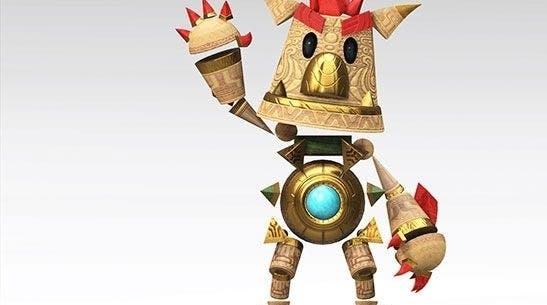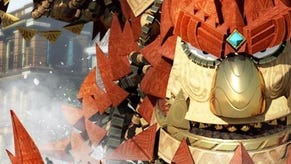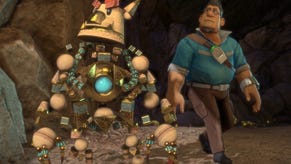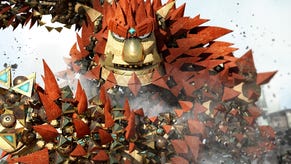Farewell to Japan Studio, the little team that felt like a big part of PlayStation's identity
X marks the spot.
Yesterday's news that original video game development at Sony's Japan Studio was ceasing wasn't so much a surprise - Gravity Rush and Silent Hill creator Keiichiro Toyama departed late last year, taking some of his team with him to form new studio Bokeh, while there's been a steady stream of other departures ever since - even if it still felt desperately sad.
Japan Studio is an odd little outfit, and while you'll be familiar with the logo from start-up screens from countless PlayStation classics, most of its work has been done in tandem with external partners. Demon's Souls, its most recent release, was in partnership with Bluepoint Games; The Last Guardian, one of its most high profile, was in tandem with Japan Studio alumni Fumito Ueda's team at GenDesign. The last game that was an original Japan Studio joint was Knack 2, though it might perhaps be kinder to remember the developer by 2013's much-loved Puppeteer, its last effort before it was tasked with bringing Mark Cerny's vision to life.
Japan Studio's original output was infrequent and erratic, which only made it all the easier to love. Ape Escape was Japan Studio's first high profile release, and every subsequent game carried that same spark of inventiveness. I loved the offbeat, uniquely Japanese games they'd occasionally produce; cult classics like the Trash Panic, or the brilliantly batshit Kung Fu Rider. It's that kind of eccentricity that first really endeared me to PlayStation, and that always felt like an indelible part of its identity.
A little part of that's gone now, and it seems like it's part of a wider metamorphosis of the PlayStation brand. Sony Interactive Entertainment has been run out of the San Mateo for nearly five years now, and PlayStation's foothold in its motherland feels like it's eroded rapidly ever since. Sales of the PlayStation 5 in Japan have been miserable - as has the supply, it's also worth pointing out - but another shift can be found within a piece of that console's design. By swapping the function of the O and X buttons around on the PlayStation 5's user interface, going against 25 years of tradition in Japan and implying the new bosses at Sony Interactive Entertainment were saying it's their way or no way at all.
It would be melodramatic to say PlayStation's dead in Japan, of course, and a development team lives on in Asobi Team - creators of one of arguably the best PS5 game to date, Astro's PlayRoom, a vivid hymn to all things PlayStation - around which Japan Studio is being re-centred. It's fascinating to see, though, the tectonic shifts within Sony Interactive Entertainment, and to wonder how it'll impact the PlayStation brand over time. For now, though, let's take some time to salute the little corner of the Tokyo office that once made such strange and wonderful games. I just hope it hasn't taken a chunk of the heart of PlayStation along with it.










